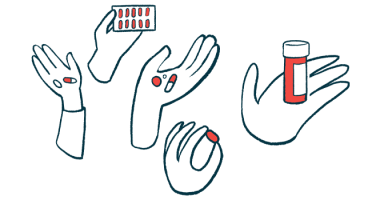Fintepla Reduces Seizure Frequency in Dravet Syndrome Youngsters, Pivotal Phase 3 Trial Reports

Fintepla (fenfluramine) oral solution, developed by Zogenix, significantly reduced seizure frequency in children and teenagers with Dravet syndrome, according to top-line results from a Phase 3 clinical trial.
This trial (Study 3) corroborated results from earlier Phase 3 trials (Studies 1 and 2). It also included patients in Japan, which supports the company’s planned submission of a new application for Fintepla’s approval in that country (J-NDA), expected in 2021. Fintepla was approved earlier this year to treat seizures in Dravet patients in the U.S. who are 2 and older.
“There remains a substantial unmet need in the Dravet treatment landscape globally, and these compelling results corroborate the substantial levels of seizure control provided by Fintepla in Dravet syndrome that was also demonstrated in Studies 1 and 2,” Stephen Farr, PhD, president and CEO of Zogenix, said in a press release. “Importantly, Study 3 included subjects from Japan and, based on our prior discussions with Japan’s Pharmaceuticals and Medical Devices Agency (PMDA), should meet the requirements to serve as the pivotal study for a J-NDA [new drug application] submission.”
“We are excited to work with our commercialization partner in Japan, Nippon Shinyaku, to leverage their expertise and commitment to rare diseases to provide Fintepla, if approved, as a potential new treatment option for patients and their families,” Farr said.
Study 3 (NCT02826863) was a multi-national, placebo-controlled, Phase 3 study including 143 children and young adults between the ages of 2 and 18 with Dravet syndrome, whose seizures were not controlled by existing anti-epileptic medicines (refractory).
After a six-week observation period before the trial (baseline), patients were assigned randomly to receive either 0.7 or 0.2 mg/kg/day of Fintepla, or placebo, in addition to each patient’s current anti-epileptic medications. Doses were increased to reach target doses over two weeks and remained at the fixed dosed for 12 weeks.
At baseline, the average number of convulsive seizures was about 63 seizures per month. The trial met its primary endpoint (goal) in demonstrating that patients who received the 0.7 mg/kg/day dose achieved a 64.8% reduction in the average number of monthly convulsive seizures compared to those given placebo.
At this dose, the median (middle) percent reduction in the number of monthly seizures was 73.7% compared to 7.6% in placebo patients.
Patients at the lower dose of 0.2 mg/kg/day showed a 49.9% greater reduction in the average monthly seizures than placebo.
Altogether, these findings are consistent with previous Phase 3 study results showing a dose-response in controlling seizures in Dravet syndrome patients.
A total of 72.9% of patients at the higher dose achieved a 50% or greater reduction in monthly convulsive seizures, compared to 45.7% at the lower dose, and 6.3% on placebo. The percentage of patients who met a 75% or greater reduction in monthly convulsive seizures in the high dose group was 47.9%, compared to 28.3% at the lower dose and 4.2% on placebo.
The median longest seizure-free period was 43 days at the high dose, 24 days at the lower dose, and 13.3 days on placebo.
Fintepla was well-tolerated in this study, with adverse events (side effects) similar to those observed in previous Phase 3 trials.
Adverse events were higher in the treatment groups as compared to the placebo group, with 44 (91.7%) of patients receiving the higher Fintepla dose reporting at least one adverse event and 42 (91.3%) of those given the lower Fintepla dose experiencing adverse events compared to 40 (83.3%) of patients in the placebo group.
Due to cardiac risks associated with Fintepla treatment, patients were monitored via echocardiogram to detect cardiac abnormalities. No patients developed cardiac problems during the study.
“Dravet syndrome is a rare, highly refractory form of childhood-onset epilepsy marked by frequent and often prolonged seizures that are difficult to control with existing medications,” said Joseph Sullivan, MD, professor of neurology and pediatrics at the University of California San Fransisco.
“Given the profound reductions in convulsive seizure frequency seen across clinical studies, combined with the ongoing, robust safety monitoring that will be part of this medicine’s use, I continue to believe that it will offer an extremely important treatment option for Dravet syndrome patients, and bring new hope to families around the world living with the severe effects of this disease,” Sullivan said.
“On behalf of everyone at Zogenix, I would like to extend sincere gratitude to the patients, families and investigators involved in this study,” Farr added.
“With Fintepla now commercially available in the U.S. and under regulatory review in Europe, we are excited to continue our work to bring Fintepla to patients in additional countries over time,” he said.







